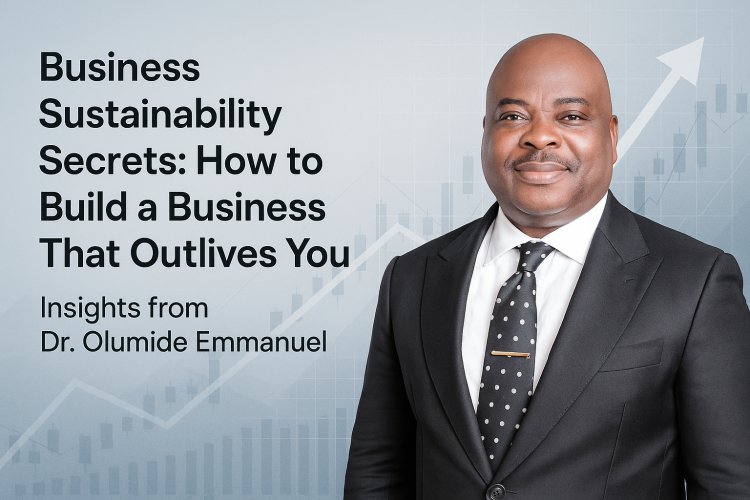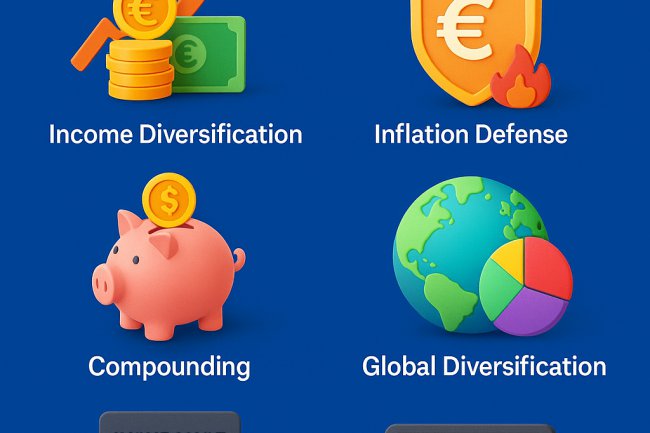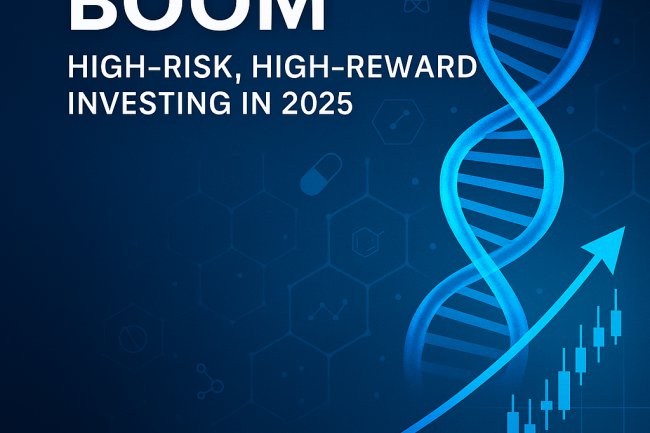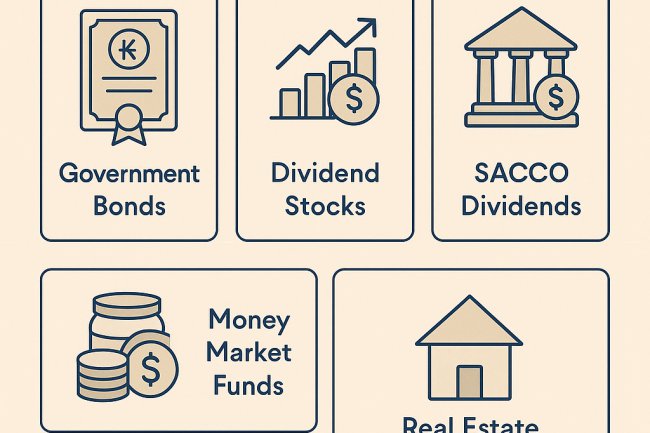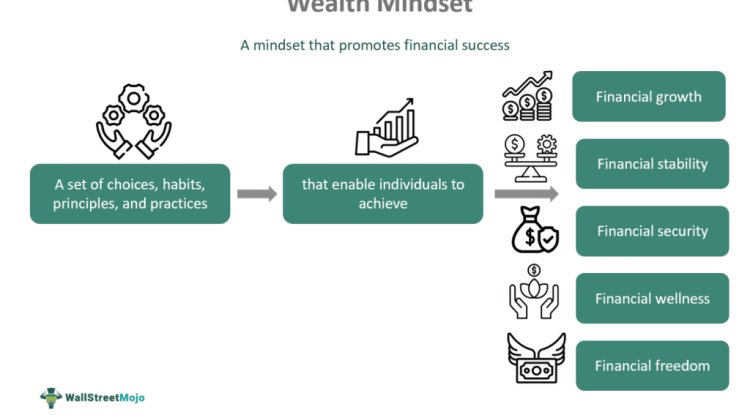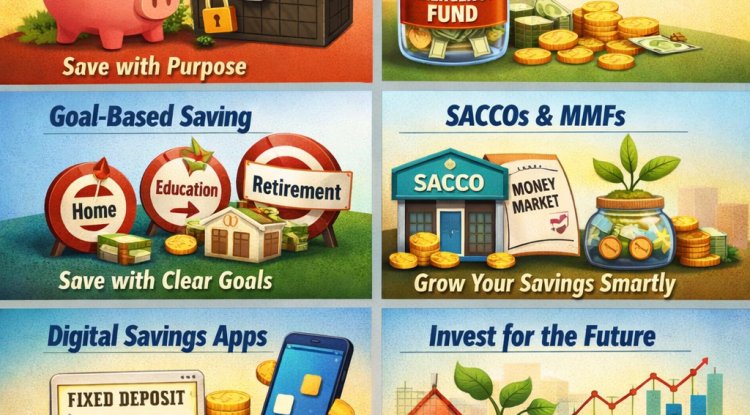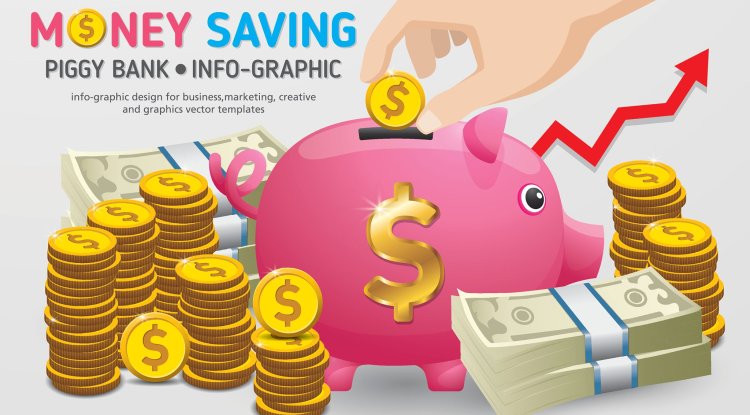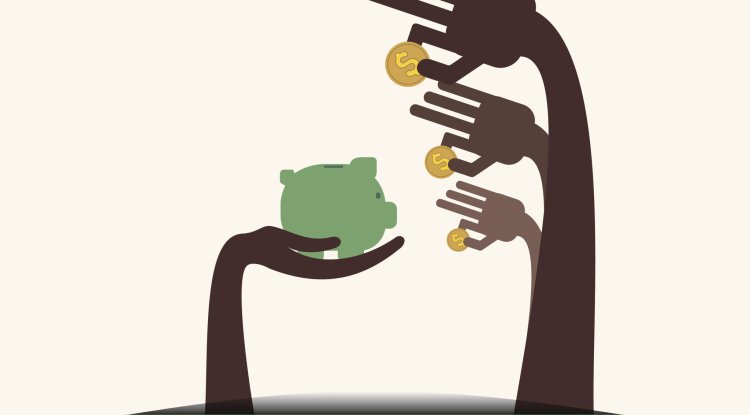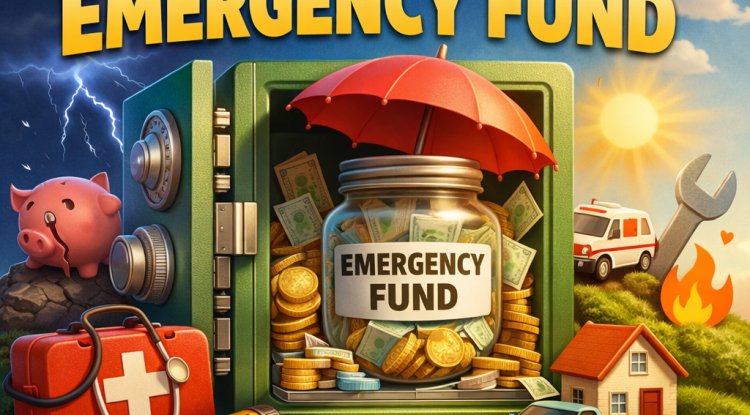Business Sustainability Secrets: How to Build a Business That Outlives You – Insights from Dr. Olumide Emmanuel
Learn how to build a transgenerational business that grows, scales, and survives economic storms with wisdom from Dr. Olumide Emmanuel’s Business Sustainability Summit.
In Nigeria and across Africa, most businesses rarely survive beyond their fifth year—let alone become legacies. Despite a surge in entrepreneurship, sustainability remains the real challenge. Dr. Olumide Emmanuel, a leading voice in financial intelligence and founder of the Common Sense Group, offers a fresh blueprint for building lasting, transgenerational businesses.
In his interview with Nancy Nnaji on Moneyline, Dr. Emmanuel unpacks the mindset, systems, and structures required to create a business that doesn’t just make money—but makes impact, meaning, and legacy.
1. The Real Crisis: Survival Mindset in Entrepreneurship
“Most people start businesses to survive. But survival mindset cannot build a transgenerational business.”
According to Dr. Emmanuel, the foundational flaw in African entrepreneurship is the survival mindset. People start businesses just to feed their families or escape joblessness. While understandable, this mindset traps entrepreneurs in short-term thinking and reactive decision-making.
Sustainable businesses begin with a long-term vision.
Shift Your Mindset:
-
From: “Let me hustle to survive.”
-
To: “Let me build something that can outlive me.”
This shift transforms how you plan, structure, and scale your business.
2. Vision + Strategy + Mindset = Sustainability
Dr. Emmanuel identifies three pillars of sustainable businesses:
Vision
Your business must have a clear, transgenerational purpose—beyond making quick cash. You’re not just solving a current problem; you’re building a legacy.
Strategy
This vision must be backed by long-term strategy: market positioning, brand continuity, systems, and people development.
Mindset
A sustainability mindset sees the business as a living entity, not just a hustle. This mindset influences daily decisions, from how you speak to customers to how you document sales.
“Imagine if the human body didn’t have a skeleton. Businesses without systems are just flesh with no bones.”
3. Systems Make Your Business Scalable
Dr. Emmanuel emphasizes the importance of systems and structure from day one. You don’t wait until you grow—you grow because of your systems.
Examples of Systems to Put in Place:
-
Phone etiquette—Have a business tone, even if it’s just you.
-
Work routine – Dress up, show up, and structure your day—even from home.
-
Documentation—Send invoices, proposals, and contracts—no more WhatsApp transfers alone.
-
Business registration—Register your business, open a corporate account, and register for tax.
“If your business cannot function without you, you’re not a business owner—you’re a trader.”
4. Why Most Informal Businesses Stay Small
In Nigeria, a large percentage of people operate from the informal sector, where the entrepreneur is the accountant, admin, HR, and cleaner.
Dr. Emmanuel suggests that even without funding, formality starts with intentionality. Begin with what you have: your phone, your living room, your discipline.
“Sustainability starts with how you answer your phone and how you present yourself—long before you get an office.”
5. The Three “Ships” Every Entrepreneur Needs
Dr. Emmanuel teaches that beyond school, entrepreneurs need three critical experiences:
Apprenticeship
Learning by doing—on the job, from a mentor or trade.
Internship
Working temporarily in businesses to learn operations, customer handling, and systems.
Mentorship
Guidance from someone who’s already built what you are trying to build.
“Many people stop paying for school fees after graduation—but real success demands you keep learning through mentorship.”
6. The Real Cost of Ignorance
“If you think knowledge is expensive, try ignorance.”
One of the reasons businesses fail is because their owners don’t invest in their personal development. Free resources (like YouTube or Google) exist, but the most transformative knowledge is often structured and paid for—seminars, masterminds, and mentorships.
Dr. Emmanuel stresses the value of networks and proximity:
-
The higher you go, the fewer people can advise you.
-
You need mentors, masterminds, and inner circles that elevate your thinking.
7. Introducing the Business Sustainability Summit
Dr. Emmanuel created the Business Sustainability Summit as a high-level platform to help business owners:
-
Scale their operations
-
Build systems and teams
-
Prepare for disruption
-
Transition leadership beyond themselves
This year’s summit includes teachings on:
-
Customer service in the new era
-
Staff training and retention
-
Systems & automation
-
Scaling and expansion
-
Emotional intelligence for leaders
-
The importance of trusts over just wills in business succession
“Many African businesses die because they were built for survival, not succession.”
8. Why Many Family Businesses Die with the Founder
One of Dr. Emmanuel’s most powerful insights:
-
1st generation builds
-
2nd generation maintains
-
3rd generation destroys
Why? The first generation struggles and creates. The second generation lacks the hunger and only maintains. The third often feels entitled and is completely disconnected.
Solution: Involve your children early. Teach them the vision. Even if they don't run the business, let them understand it enough to govern or protect it.
9. Your Business Needs a Board—Not Just Bloodline
In the West, companies remain strong because leadership is transferred based on capability—not family ties.
Dr. Emmanuel proposes:
-
Ownership can stay in the family
-
Management should go to competent professionals
Without this structure, businesses collapse once the founder retires, dies, or is incapacitated.
10. Success Leaves Clues—Learn From the Best
The Walmart dynasty, L’Oréal, and Gucci provide contrasting examples of family business success and failure. The key? Vision alignment, early training, and strategic planning.
Dr. Emmanuel advises business owners to
-
Create a family vision
-
Align education and values with the family business
-
Document business structures clearly
Final Takeaways
Sustainability isn’t about having millions. It’s about having the right mindset, systems, and people.
Whether you're a one-person business or a CEO of 100 employees, you must start building like you're planning for the next generation.
10 Actionable Steps from Dr. Olumide Emmanuel
-
Start with a sustainability mindset
-
Register your business and open a business account
-
Create clear internal systems (emails, invoices, schedules)KEEMSTAR OFFICE SOLUTION
-
Structure your day like a CEO—even if you work from home
-
Invest in mentorship and lifelong learning
-
Train your staff or team—even if it's just one person
-
Develop a succession plan beyond your children
-
Use legal structures (like trusts) to preserve ownership
-
Upgrade customer service to match modern expectations
-
Learn to scale from 500 to 5,000 customers
What's Your Reaction?







